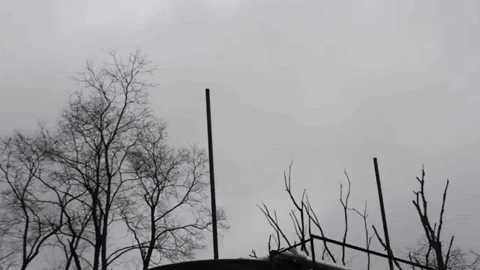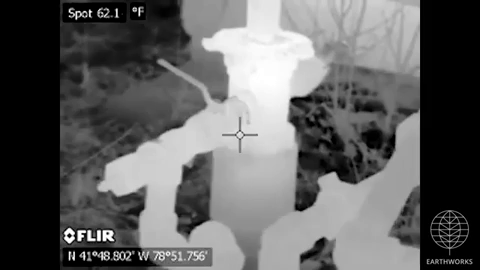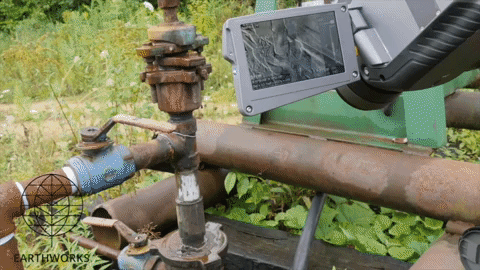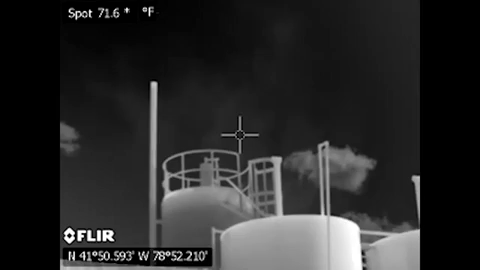After years of work by communities and advocates, Pennsylvania is now poised to adopt new rules requiring oil and gas companies to reduce their pollution. Oil and gas companies have created a 1 million+ ton methane and air pollution problem that worsens climate and threatens the health of more than 1.5 million Pennsylvanians.
But for rules to really make a difference, Governor Wolf and the Department of Environmental Protection (DEP) must strengthen their current proposal.
As written now, it excludes tens of thousands of low-producing oil and gas wells and facilities–and the pollution that comes with them. This loophole would leave an estimated half of Pennsylvania’s oil and gas climate pollution wafting into the atmosphere and abandon too many residents in need of protection.
Despite industry fiction, oil and gas companies can afford to cut pollution.
Nearly 60% of all production from low-producing wells came from just 10 companies making over $5 million in revenue last year. These are NOT “mom & pop,” small businesses. They’re big business. They’re polluters. And many of them have a well-documented track record of other wrongdoing against Pennsylvania’s water, land, air, and communities, too.
Here’s a rundown of just some of those top low-producing well owners that have documented problems with polluting and can afford to cut it.
Worst of the Worst
It’s a given that oil and gas operations pollute—they’re industrial operations that use chemicals and heavy machinery to pull hydrocarbons from deep underground. But it’s another thing to see the pollution and understand the scale of the problem.
Earthworks’ trained and certified staff use industry-standard optical gas imaging (OGI) technology to make visible otherwise invisible air pollution containing gases and toxics that harm climate and health. Across Pennsylvania and many other states, we work to document and expose what is happening at low-producing but still very leaky wells on public lands like the Allegheny National Forest, large shale gas wells and processing plants, and massive compressor stations along pipelines.
Polluters can no longer deny what they’re doing—Earthworks has visual evidence, as shown in the OGI videos below. That is why they rely on getting politicians to write loopholes into laws and regulations.
Above: This powerful proof of pollution at a Range Resources well pad in Washington County comes from optical gas imaging, the same tool used by the PA DEP, US EPA, and oil and gas operators themselves to look for leaks in their wells and other facilities.
On top of these images of air pollution, these PA oil and gas operators also have a well-documented track record of other wrongdoing.
- Range Resources has long held the dubious distinction of being a “top violator” in Pennsylvania. Then in 2016, a Range Resources vice president blatantly announced the company’s strategy of siting gas wells in poor communities and away from those with more resources to resist unwanted extraction. Now, in 2020, Range recently pled “no contest” to charges by the State Attorney General for toxic spills and other violations in those communities.
- CNX, like Range, profits off a combination of low-producing conventional wells and higher-producing “fracking” wells in PA. Since 2000, it has earned almost 800 violations, over 80 percent of which are listed as “environmental health and safety violations.” It also just recently was forced to pay a $175,000 fine for uncontrolled methane leaks. So it’s no surprise that CNX’s CEO has been one of the loudest voices opposing reasonable rules and penning tirades against requirements to reduce air pollution.
 |
Above: One of 1,400 Diversified Oil & Gas wells named for plugging in 2019 settlement with DEP. When Earthworks visited the site in March 2020, this tank was still emitting.
- Diversified Oil and Gas takes the prize for owning the most conventional wells in PA, holding over 22,000 of these barely-producing but high-polluting facilities. For years, Diversified has boldly exploited well bonding requirements by buying up these wells en masse, requiring the DEP take legal action so that Diversified would not abandon their thousands of nearly defunct wells and leave the cost of plugging to taxpayers.
 |
 |
 |
Above: Leaks at conventional wells owned by Snyder Brothers Inc. This well is located on public land in the Allegheny National Forest.
- Snyder Brothers Inc demonstrated a pattern of violations early in the shale boom, racking up about half as many violations as they had wells. Since 2000, the DEP has issued 611 violations to Snyder Bros, 301 of which are listed as “environmental health and safety violations.”
Each of these companies is among the top low-producing well owners and earned well over $5 million in total revenue last year. Research by Earthworks and an analysis by the DEP both show that these companies can afford to do better, yet industry continues to try to dodge the rules because it’s business as usual for companies to profit off of gaps in Pennsylvania’s oil and gas pollution rules.
Governor Wolf’s actions now will determine his legacy on health and climate. In order to begin to undo our climate crisis and protect health, Governor Wolf and the DEP must remove the loopholes in their proposal to cut oil and gas air pollution that allow these bad actors, and many others like them, to keep on polluting.
Take action—tell Governor Wolf to strengthen proposed oil and gas pollution safeguards!

